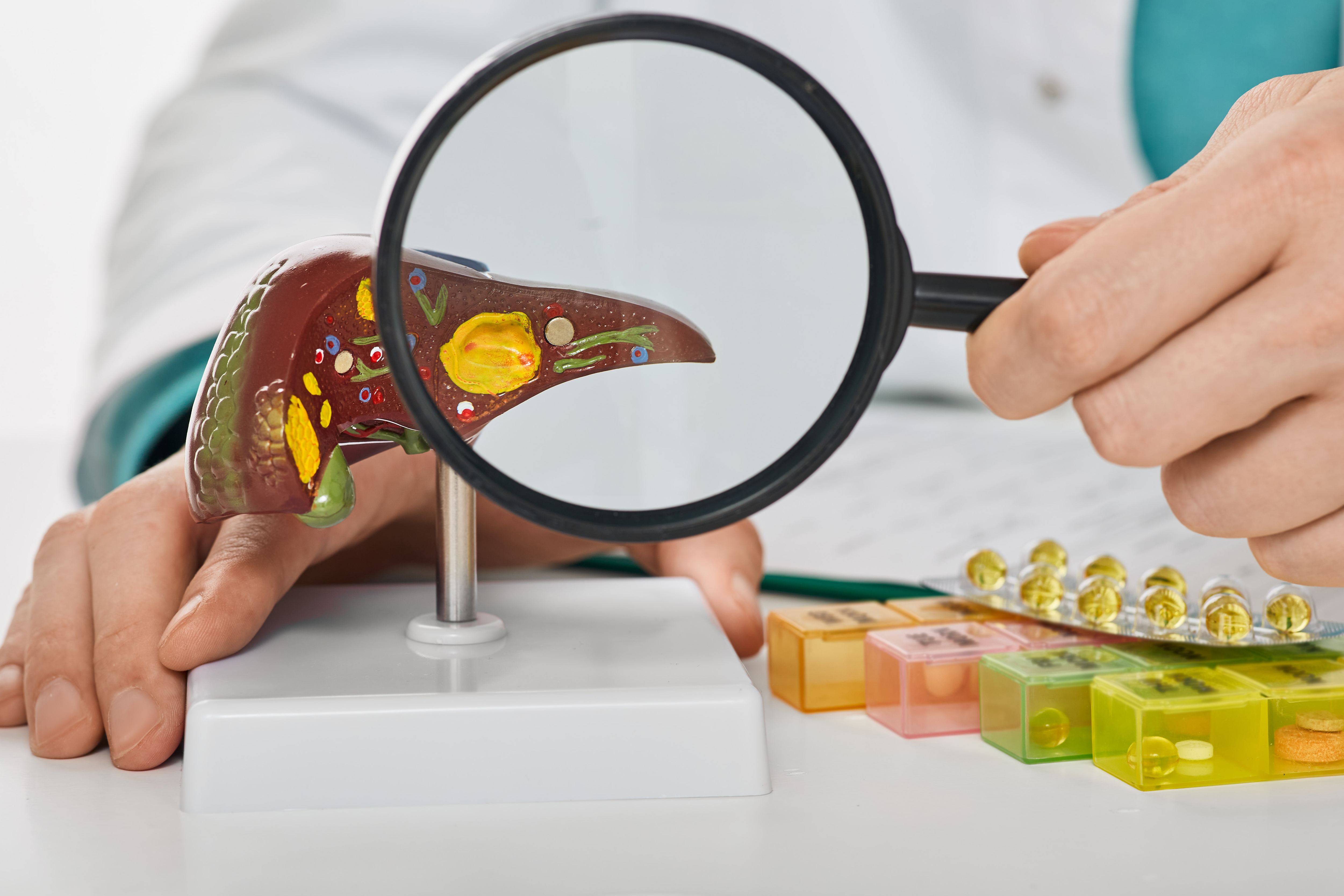Liver Cancer: Causes, Risk Factors & Prevention
Liver cancer, or hepatocellular carcinoma (HCC), is among the most common type of cancer originating in the liver cells. It is one of the most common cancers worldwide and is often diagnosed at an advanced stage, making treatment challenging
What causes liver cancer? The most common risk factors for liver cancer include chronic hepatitis B or C infection, heavy alcohol consumption, non-alcoholic fatty liver disease (NAFLD), and certain genetic conditions. Symptoms of liver cancer can include abdominal pain, weight loss, fatigue, nausea, and jaundice (yellowing of the skin and eyes).
Diagnosis of liver cancer usually involves imaging tests such as ultrasound, CT scan, MRI, and a biopsy to confirm the presence of cancer cells. Treatment options for liver cancer include surgery, radiation therapy, chemotherapy, targeted therapy, and immunotherapy. Here's more about what you must know about liver cancer causes & risk factors.
What Are the Top Causes of Liver Cancer?
The top liver cancer causes, also known as hepatocellular carcinoma (HCC), include:
- Chronic hepatitis B or C infection:Hepatitis B or C viruses can cause liver inflammation, and scarring causing liver cancer.
- Heavy alcohol consumption: Drinking too much alcohol over a long period damages the liver, increasing the risk of liver cancer.
- Fatty liver disease: It is a condition where fat builds up in the liver, causing inflammation and scarring, increasing the risk of liver cancer.
- Cirrhosis: Cirrhosis is the condition where the healthy liver tissues become scarred causing liver cancer.
- Diabetes: People with diabetes have a risk of developing liver cancer, possibly due to the high levels of insulin in the body.
- Obesity: Being overweight or obese can cause liver cancer, possibly due to the increased risk of developing NAFLD.
- Genetics: Some genetic conditions can increase one’s risk of developing liver cancer.
It is important to note that having one or more of these risk factors does not necessarily mean that someone will develop liver cancer. Still, taking liver cancer prevention steps to reduce risk factors and undergoing regular screening for liver cancer is essential.
Who Is More Likely to Get Liver Cancer?
Liver cancer, also known as hepatocellular carcinoma (HCC), is more common in men but can affect anyone. Still, certain factors can increase the liver cancer causes & risk factors of developing the disease. Some groups of people who are more likely to get liver cancer include:
- People with chronic hepatitis B or C infection: Hepatitis B and C viruses can cause liver inflammation, damage, and scarring and increase the risk of liver cancer.
- People with cirrhosis: Cirrhosis is when the liver becomes scarred and damaged over time.
- Heavy alcohol drinkers: Drinking large amounts of alcohol over a long period can cause liver damage, increasing liver cancer risks.
- People with fatty liver disease: In this condition, extreme fat deposition in the liver causes inflammation followed by scarring, increasing the risk of liver cancer.
- Genetic conditions: Some genetic conditions, such as hemochromatosis and Wilson's disease, increase liver cancer risk factors.
- People with diabetes: Diabetic people have a high chance of developing liver cancer, possibly due to the high levels of insulin in the body.
What Are The 5 Major Risk Factors for Liver Cancer?
Several major liver cancer risk factors can increase one's chances of developing cancer.
Gender
Hepatocellular is most common among women. The primary reasons for this include one's lifestyle and behaviors that affect it. However, fibrolamellar, a subtype of hepatocellular carcinoma, is much more common among women.
Race/ethnicity
The rate of liver cancer is highest among Pacific Islanders and Asian Americans. While white Americans have a low risk. The common risk factor includes chronic hepatitis and alcoholism leading to the development of cirrhosis of the liver.
Chronic viral hepatitis
Chronic viral hepatitis infection is transmitted in the person's semen, blood or body fluids. Hepatitis B and C viruses can spread the risk of liver cancer. Chronic hepatitis is also among the leading causes of liver cancer in Europe, Japan, and North America.
Cirrhosis
Cirrhosis is a liver disease that replaces the healthy liver tissue with scar tissue. It blocks blood circulation in the liver and disrupts its functioning. Cirrhosis is mainly caused by chronic hepatitis and chronic alcoholism.
Heavy alcohol & tobacco use
While consuming alcohol and tobacco, use may not directly cause liver cancer but increases the risk of developing it. Alcohol abuse is the major cause of liver cirrhosis.
What Is the Prevention of Liver Cancer?
There are several
liver cancer prevention steps you can take to reduce your liver cancer risk factors, including:
- Get vaccinated for hepatitis B: The hepatitis B vaccine is a safe and effective way to prevent hepatitis B infection, which may cause liver cancer.
- Practice safe sex: Hepatitis B and C can be transmitted through unprotected sex, so it is essential to practice safe sex to reduce your risk of infection.
- Limit alcohol consumption: Heavy alcohol consumption can cause liver damage and increase the risk, one must limit their alcohol intake or stop consuming it altogether.
- Manage diabetes: People with diabetes are at an increased risk of developing liver cancer, so managing blood sugar levels through a healthy diet and regular exercise is important.
- Avoid exposure to toxins: Exposure to certain chemicals and toxins, such as aflatoxins and vinyl chloride, causes liver cancer, and it’s important to avoid exposure to these substances whenever possible
Best Treatment for Liver Cancer
Proton Therapy is one of the most advanced and effective treatments for liver cancer, as it delivers highly precise radiation doses to the affected area. This type of treatment reduces damage to healthy tissue surrounding the tumor while delivering powerful doses to destroy cancer cells.
At Apollo Hospitals, proton therapy is used in combination with other treatments such as chemotherapy, immunotherapy, or targeted therapies to maximize effectiveness and improve patient outcomes. The team of specialists at Apollo works together to develop an individual treatment plan for each patient, ensuring that they receive the best possible care.
Conclusion
Liver cancer, also known as hepatocellular carcinoma (HCC), is a severe disease that can affect anyone, but certain factors can increase the risk of developing the disease. These liver cancer risk factors include chronic hepatitis B or C infection, heavy alcohol consumption, non-alcoholic fatty liver disease (NAFLD), cirrhosis, diabetes, obesity, and genetics.
Fortunately, there are several steps that you can take to reduce your risk of liver cancer. Early detection is key to improving the prognosis of liver cancer, so if you are at higher risk, it is important to undergo regular screenings for detecting liver cancer early when it is easier to treat.

Copyright © 2023 Apollo Proton Cancer Centre. All Rights Reserved





